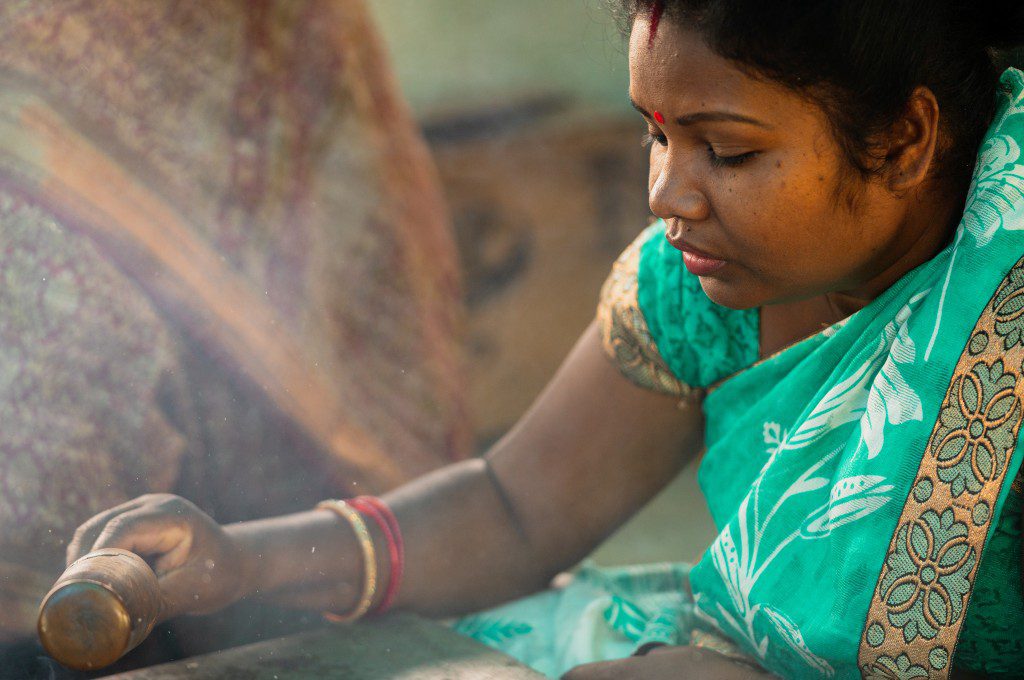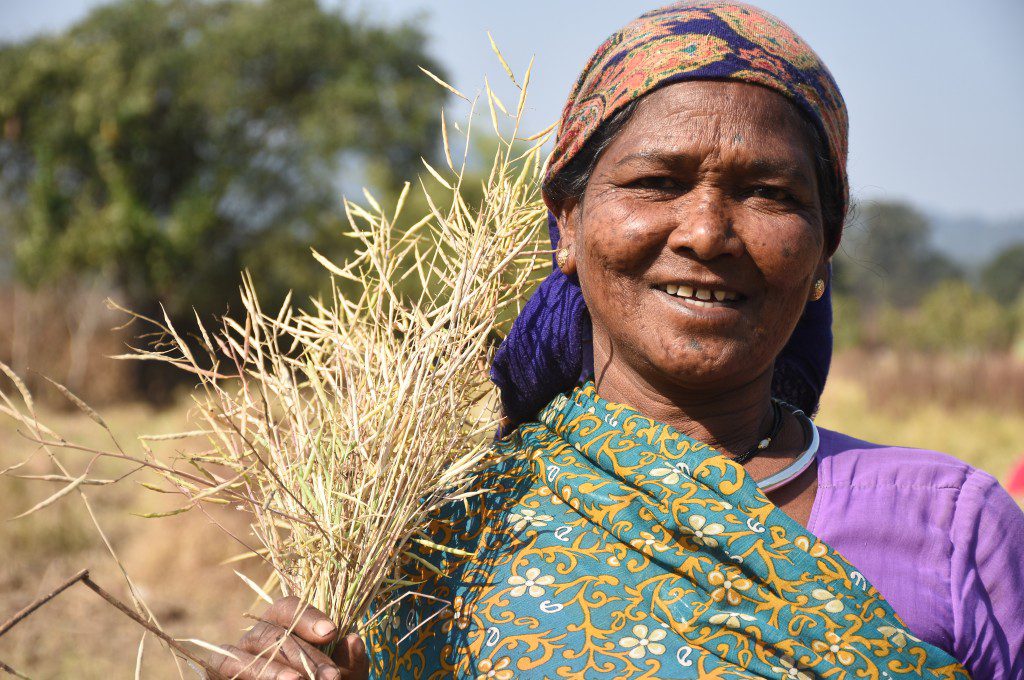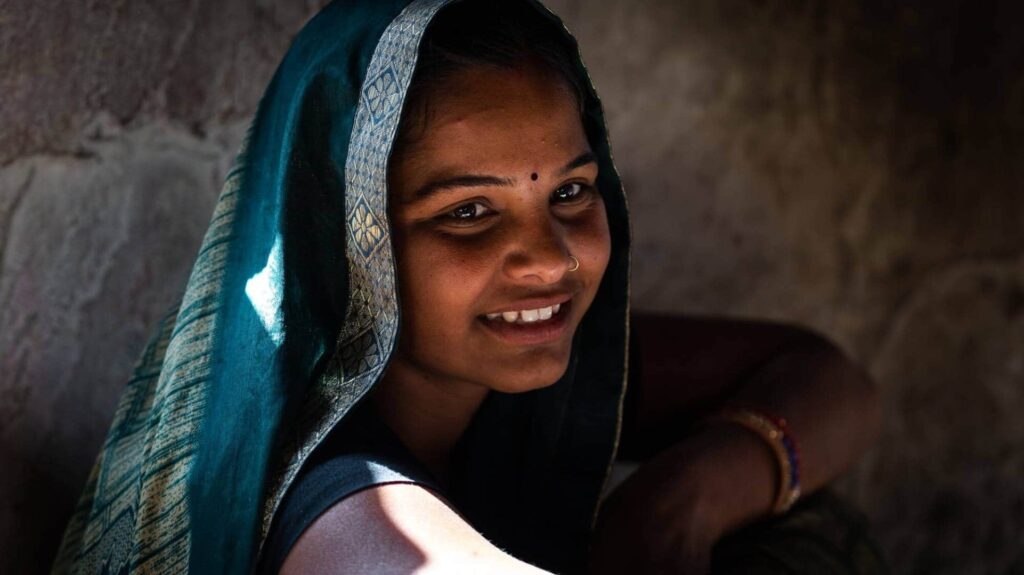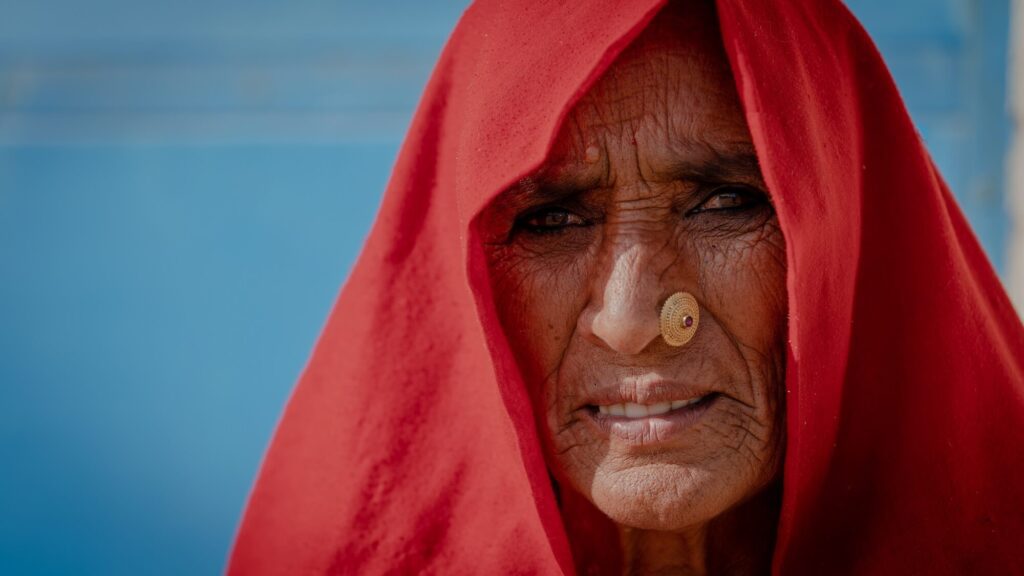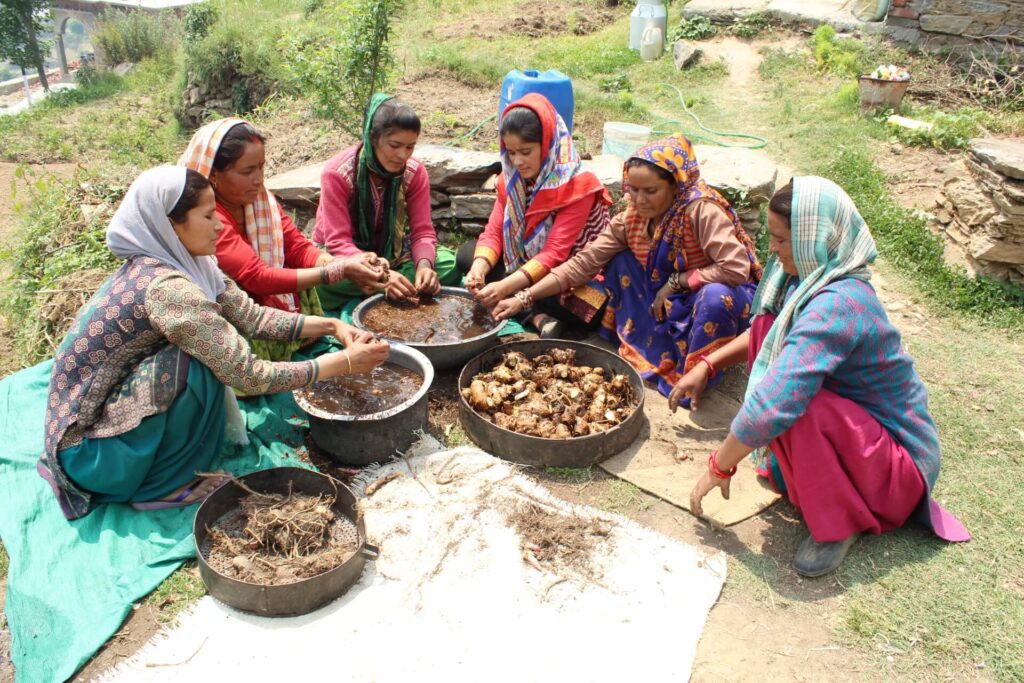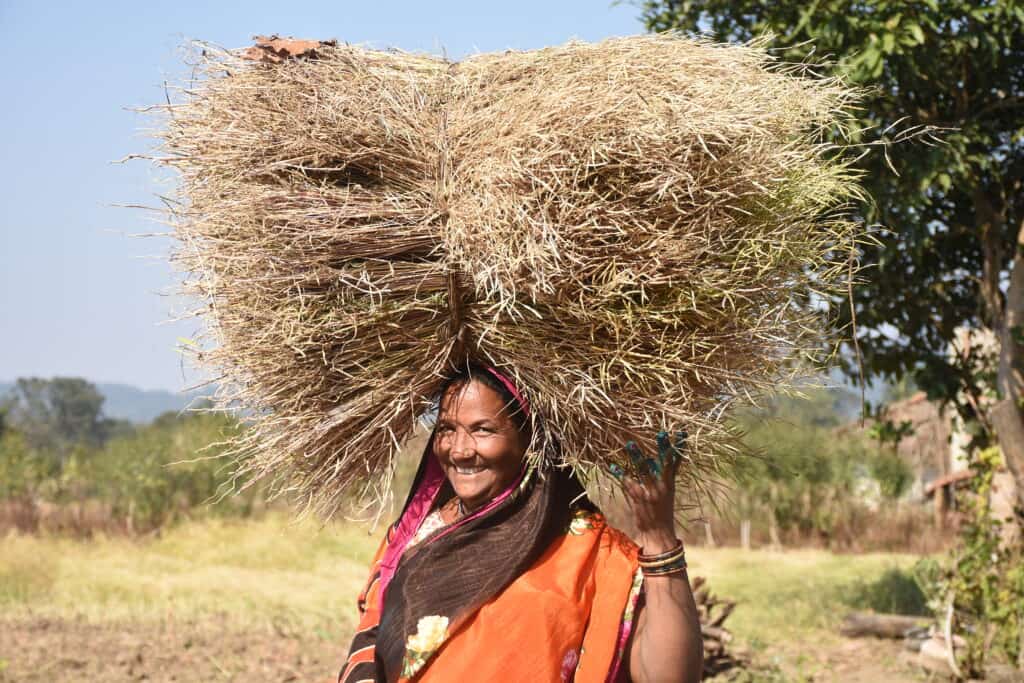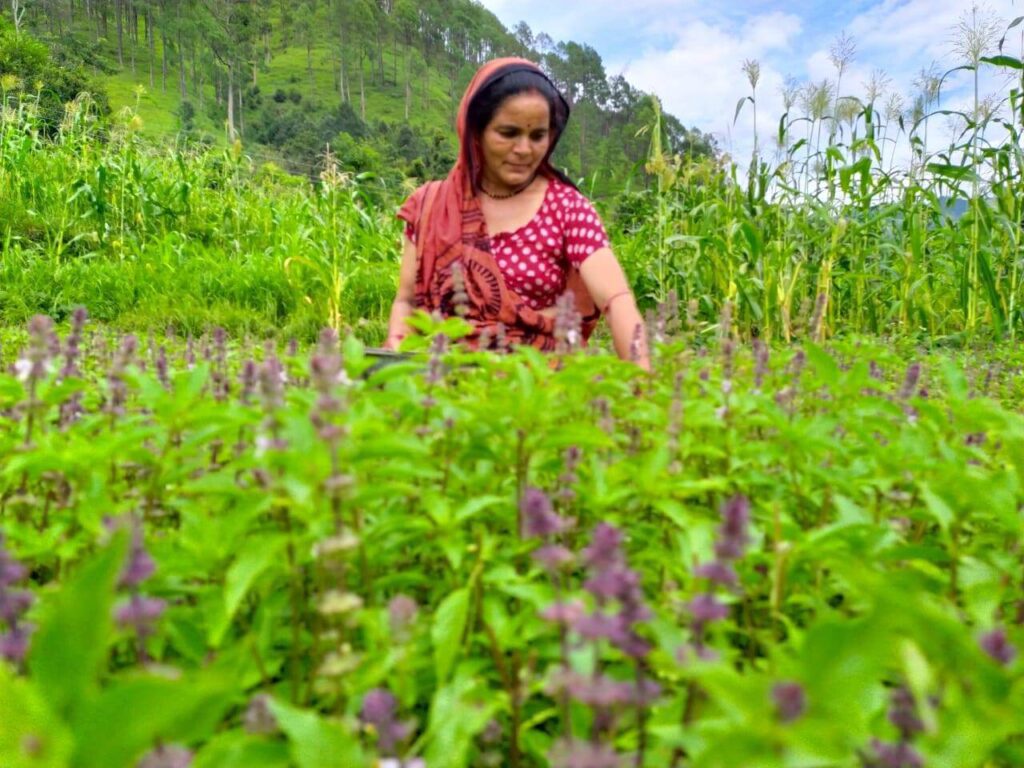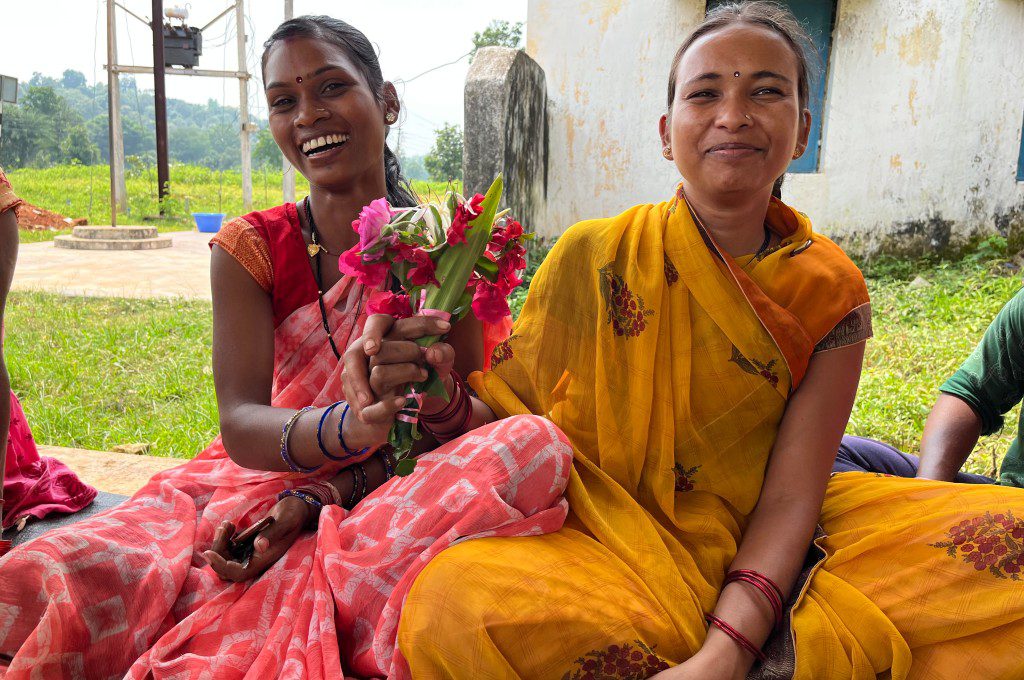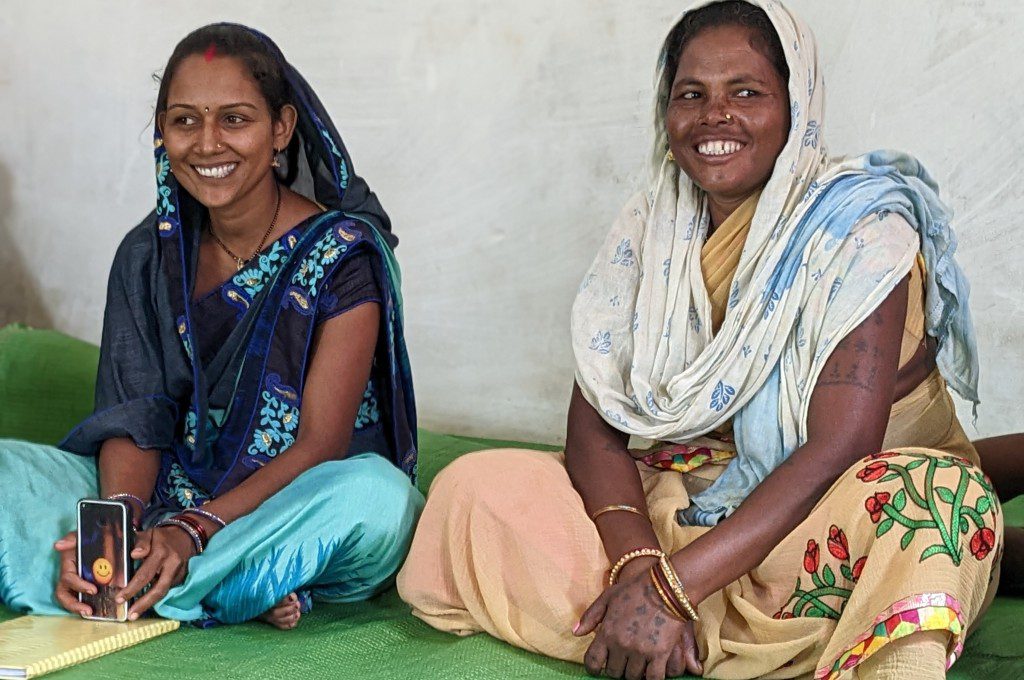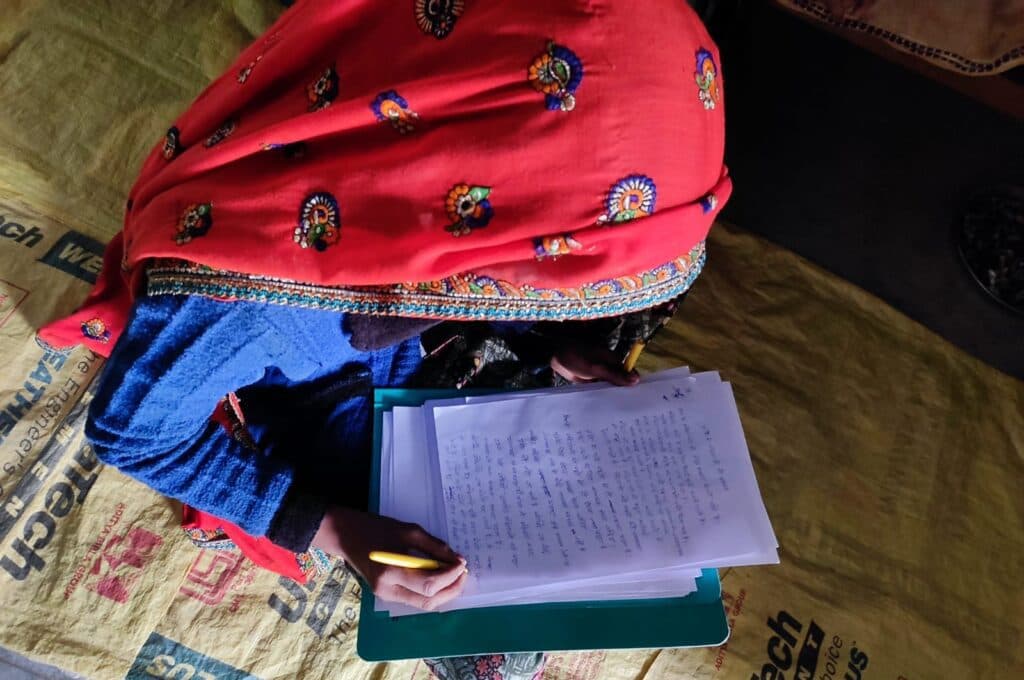News and Views
Freedom: How Do Women’s Skill Development Outcome Affect Us?
Today, the spotlight on women’s skill development has intensified, and rightfully so. We find ourselves in a global movement striving for gender equality, such as the United Nations’ Sustainable Development Goal 5. This goal focuses on empowering women and girls, recognizing their critical role in shaping our world. Yet, while empowering women and their skill development has become increasingly familiar, it is vital to grasp the profound impact it can have on society. Beyond the fundamental principle that “women deserve more,” there are tangible benefits that resonate with every individual. So, why should this cause be a top priority for governments and advocates? What impact does uplifting one woman have on society? Beyond the obvious moral imperative, find out the effects of women empowerment in India and globally below. When Did the Women’s Skill Development Movement Start? The fight for women’s rights has been ongoing for centuries. Advocates have continuously laid a solid foundation for women’s empowerment, from securing the right to vote to defending reproductive rights. And at the heart of this empowering mission lies the crucial aspect of skill development for women. Tracing back history, Post World War II significantly changed how society viewed women. Women were recognised for their essential contributions during the war and in shaping culture. This pivotal moment drove the need to prioritise women’s involvement in the workforce and offer them abundant opportunities for enhancing their skills. Whether it be economic growth or overall prosperity, empowering women with skill development becomes crucial. 4 Ways on How Women’s Empowerment Benefits the Society When seeking freedom, it’s crucial to acknowledge the significance of empowering women. The urgent need for enhancing women’s skills is a cause that resonates with advocates and society as a whole. By embracing equality’s transformative power, we can unlock numerous benefits that uplift us all, including the following: Way #1: Enhance Lives for Children Empowering mothers from underprivileged families with opportunities to develop their skills and earn a living while staying at home can profoundly impact their children’s lives. When these mothers have the means to provide for their families, they can ensure their children receive a quality education, have access to three meals a day, and fulfil their necessities. It’s essential to recognise that changing perspectives alone may not always be sufficient, as some individuals face seemingly impossible circumstances, like the vicious cycle of poverty. By collaborating with NGOs and the government to offer free skills training for these mothers, we uplift them and help create sustainable livelihoods. As these mothers become self-reliant, they can secure a brighter future for their children, offering them comfort and stability. Moreover, when children witness their mothers taking charge of their lives and embracing newfound skills, they are inspired to dream big. The old gender stereotypes that limit girls to domestic roles and boys to work are challenged, replaced with the notion that anyone, regardless of gender, can pursue their passions and aspirations. Way #2: Productive Economy Different genders have different capabilities. Recognising and harnessing these diverse strengths creates an environment where individuals can thrive and contribute optimally. And truth be told, women and men are built to act differently. Some individuals excel in managerial roles, steering teams and organisations towards their goals. Others thrive in customer relations, making meaningful connections that foster loyalty and business expansion. These unique attributes, inherent in both men and women, create a dynamic and well-rounded workforce. In other words, a thriving economy results from the joint contributions of a workforce that values and utilises both genders’ distinct qualities. Therefore, supporting women’s skills development programs makes the economy more inclusive and diverse. Way #3: Fosters Peace Gender-based superiority leads to some husbands subjecting their wives to domestic abuse, believing their gender makes them mightier. Moreover, human traffickers exploit young girls, preying on their vulnerability and lack of education and legal knowledge. However, we can disrupt this harmful thinking pattern and foster peace by empowering women through skill development. It starts with addressing immediate needs, such as raising funds, but the impact goes far beyond that. Women empowerment initiatives create a ripple effect, educating and enlightening women about their capabilities. When women receive adequate guidance and support, they deeply understand their innate strength and potential. They refuse to be oppressed and recognise that their capabilities can break oppression’s chains. Financial independence enables them to escape abusive circumstances and take charge of their lives. Way #4: Recognition of Women Achieving fairness and true gender equality may be a challenging journey. And one critical aspect that requires recognition and attention is women’s skill development. Despite the hurdles, advocates persevere in their mission to support women through various means, such as raising awareness and providing education. The impact of these efforts is becoming increasingly evident as more and more women receive the recognition they rightfully deserve in diverse fields. Women’s potential is being tapped and celebrated with pride in business or science. The effects of women’s empowerment in India through government funding and NGOs reflect a growing recognition of women’s pivotal role in society and the necessity of supporting their progress. Women empowered through skill development break barriers to proving their competence and expertise. A Sneak Peak to Women’s Skill Development Training The following are typical areas of skill development training for women in India: • Entrepreneurship and Business Skills: Empowering women with business skills through our training programs, covering entrepreneurship, management, marketing, and finance. • Vocational Skills: Learning various vocational skills such as tailoring, handicrafts, cooking, beauty, and wellness can improve job prospects and provide opportunities for income generation. • Digital Literacy: Workshops and courses to help women improve their computer skills, learn how to use the internet, and develop their digital marketing abilities. The goal is to increase women’s participation in the digital economy. • Financial Literacy: Equip individuals with the knowledge and skills necessary for financial planning, budgeting, and investment to promote economic independence and security. Join Udyogini’s Movement for Women’s Skill Development! Visit our website and learn how you can
Breaking Sociocultural Barriers with 3 Effective Approaches
Human diversity comes from various beliefs and practices, which provide rich evidence of different cultures. However, when some individuals view their culture as superior, it can create sociocultural barriers. These barriers, based on wealth, education, religion, or background, can create an unjustified sense of superiority to divide groups. Over the years, sociocultural barriers have been present but intensified during colonisation— indigenous cultures’ voices are stifled. This has resulted in misunderstandings and conflicts due to differences in communication styles and cultural norms shaped by historical remnants of colonisation. Since then, multiple sociocultural barriers have arisen. Thus, advocates arise to fight against sociocultural disparity. Over the years, efforts have been made to bridge gaps in gender stereotypes, poverty, racism, and more. However, victory is still in progress. We should work together to eradicate disrespect, arrogance, and conflict in small ways. Breaking Societal Barriers: Unraveling the Root Causes How do these barriers come into existence? Well, even before we are born, society has already woven its rules. As you grow up, most families pass down these ingrained beliefs and practices to the next generation without considering their impact on those outside their immediate society. Like the issue of gender equality, in some cultures, women are conditioned to believe they are beneath men, meant to serve them and become mere subjects of control. When instilled in children and adults, such beliefs create a behavioural pattern that solidifies into social barriers. People quickly pass judgments based on race, gender, and skin colour. These biases become ingrained and contribute to the persistence of these sociocultural barriers. This is why we must emphasise good governance and expert guidance on women’s rights, particularly in India. Understanding the significance of viewing each individual as equal eliminates the roots of rudeness and discrimination towards women. But gender equality is not the only sociocultural barrier prevailing in our society; there are other common problems like the following: a. Poverty: The prevalent mindset of “rich is too rich, poor is too poor” persists even today, where the upper class often feels superior and segregates themselves from the poor. b. Fear: Many bystanders witnessing violence feel a sense of “diffusion of responsibility” and a fear of getting involved. They worry that helping might lead to danger reflecting onto them. c. Conflicts: We all come from diverse backgrounds and hold different opinions. However, when these opinions are expressed without respect for differences, it can lead to relationship problems, workplace fights, stress, and anxiety. d. Discrimination and Gender Stereotypes: These sociocultural issues plague many societies. Women are often not considered equal to men, resulting in unequal pay and opportunities, even when they are equally hardworking and capable. e. Racism: White individuals are often favoured over their black counterparts, perpetuating inequality. Additionally, race stereotyping, like assuming all Asians share the same physical appearance, further perpetuates divisions. 3 Ways to Break Sociocultural Barriers Diversity is a natural aspect of humanity, but when conflicts arise due to these differences, we must find the right approach to overcome sociocultural barriers. Whether at work or home, we should aim to have a mindset of progress when fully embracing and advocating for our unique differences. Here are some practical ways to achieve this transformation: 1. Embrace Open-Mindedness It is acceptable to hold beliefs that differ from others. What truly matters is how we communicate these viewpoints respectfully. Effective communication eradicates the need to assert our superiority. It allows us to embrace and celebrate the diversity that makes us all unique. Take the varying perspectives as opportunities to enrich our understanding and find solutions in myriad ways. 2. Engage the Community Driving meaningful change becomes challenging when we stand alone. As advocates like Udyogini in India exemplify, involving communities in the journey towards gender equality and justice is vital. Empowering women and marginalised groups to participate in decision-making inspires them to pursue what is suitable for themselves, their loved ones, and society. As agents of change, we can guide and advocate for eliminating superiority complexes based on race, gender, and class. While this transformation may be gradual, positively shaping one family at a time should not be underestimated. You can start by imparting love, respect, and confidence in the uniqueness of every individual, particularly among children who will shape the future. 3. Trust Education Knowledge remains the most potent weapon against barriers. Whenever possible, actively seek interactions with diverse cultures to gain a deeper understanding of their perspectives. You can also use technological platforms to provide insights into individuals and beliefs. But we must acknowledge that education can be challenging, especially for underprivileged families. Sometimes, household duties and caring for family members take precedence over education. Thus, advocates and the government must collaborate and establish laws guaranteeing every child’s right to education. Udyogini’s Take on Breaking Barriers Organisations like Udyogini are vital in guiding and teaching women about entrepreneurship and business development. We aim to break down gender stereotypes and empower women to achieve financial independence, improving their socio-economic status. Remember, if you wish to see transformative change, you must be the catalyst for progress. Let us collectively break the barriers that divide us and foster a society where diversity is cherished and celebrated. Break Free from Sociocultural Barriers with Udyogini! Join our mission to empower women, break stereotypes, and promote inclusivity. Let’s work together to create a world where diversity flourishes, and every voice is valued. Take the first step towards a future without barriers by contacting us today at +91-9319620533.
The Impact of Women Empowerment NGO: Making a Difference
Non-governmental organizations (NGOs) have consistently advocated for various causes, focusing on women’s empowerment. The All India Women’s Conference (AIWC), established as an NGO in 1927, is a prominent force in advocating women’s rights. They work tirelessly to ensure that women have adequate political representation access to social welfare, education, and healthcare, empowering women from all backgrounds. Like AIWC, NGOs for women pave the path to progress by providing access to quality education and women’s entrepreneurship platforms. They are creating a more inclusive future where women’s empowerment and opportunities are limitless. In other words, women empowerment NGOs, passed down from generation to generation, make a massive difference towards equality for all humanity. However, you may be curious about how a single group can bring such a significant change regardless of size. Read on to learn more. Active Women Empowerment NGOs in India Here are four NGOs that actively work towards improving women’s rights in India and have made a significant impact: ⦁ Udyogini: Our goal is to empower women by equipping them with the skills and entrepreneurial expertise to start and maintain successful businesses. We provide expert mentorship, guidance, and comprehensive training to women from disadvantaged backgrounds. ⦁ Goonj: Its primary focus is disaster relief and community development, but it also emphasizes empowering women by promoting education, economic independence, and dignity. ⦁ Azad Foundation: This non-governmental organization (NGO) aims to empower women through its “Women on Wheels” initiative. The program trains women from marginalized communities to become professional drivers, allowing them to support themselves and challenge gender stereotypes. ⦁ Breakthrough India: The Breakthrough initiative aims to tackle violence against women and gender-based discrimination and promote a fairer society through media, communication, and community engagement. 4 Positive Differences Through NGOs for Women Empowering initiatives are crucial in the fight against oppression, inequality, and violence. They pave the way for a more equitable world for people of all genders. NGOs for women’s rights and programs focused on entrepreneurial development for women are just a few examples of these transformative initiatives that bring us closer to a better future. If you want to see a glimpse of a society where women are empowered and their potential is fully unleashed, read some of these remarkable ways in which NGOs are making a positive difference: ⦁ Access to Quality Education In India, a disheartening reality persists—many young women find themselves confined to household duties and denied access to education. They are often trapped in poverty and hindered by social class disparities, causing their aspirations to be overshadowed by familial responsibilities and domestic tasks. Fortunately, some organisations are dedicated to supporting young girls. These NGOs work tirelessly with their members to ensure that girls receive equal educational opportunities as boys. They empower these girls by teaching them essential knowledge and valuable skills, which helps to boost their confidence and ability to pursue education. One such exemplary organisation is IIMPACT NGO. They extend a helping hand to socially and economically disadvantaged girls, granting them the chance to engage in meaningful and stimulating education up to Class 5. Their impact is profound, with approximately 60,000 girls already educated across more than 1500 villages in 11 states of India. ⦁ Improve Skill Development and Economic Independence Historically, there has been an unfair stereotype that women are only capable of basic housecleaning tasks, perpetuated by biased views that portray them as weak. As a result, the development of women’s skills has been hindered by harsh judgments. Thankfully, times are changing, and the fight against gender inequality is gaining momentum. Women empowerment NGOs have emerged as powerful forces in this battle, providing opportunities for women to pursue their desired career paths through skill training programs. One example is Udyogini, which has pioneered an entrepreneurial development program, equipping women with various livelihood skills. These NGOs go beyond mere training; they actively support income-generating projects, microfinance initiatives, and vocational training programs. Promoting entrepreneurship and enhancing financial literacy empowers women to achieve true economic independence. ⦁ More Legal Support The reality of women facing abuse continues to persist. News stories of battered wives and murdered women echo globally, reminding us of the urgent need for change. Trauma often leaves victims silenced and helpless, making it crucial to provide accessible legal support for all abused women. Empowerment goes beyond legal assistance; it involves raising awareness and fostering understanding. Many women may unknowingly accept violence as usual due to ingrained cultural beliefs. However, when NGOs take the initiative to educate and create awareness about women’s legal rights, they equip survivors to stand up for themselves and demand what they rightfully deserve. By arming oppressed women with accurate information, these organisations instil confidence in their decision-making processes within their communities and the broader society. This translates into increased participation in leadership roles, political engagement, and representation across all spheres of life. ⦁ Enhance Access to Health and Well-Being Many women face challenges such as unwanted pregnancies and limited access to vital health information, which can leave them feeling vulnerable. To address this issue, non-governmental organisations (NGOs) focused on women’s empowerment have made significant efforts to improve access to healthcare and promote overall well-being. Their goal is to eliminate obstacles and provide every woman, regardless of educational background, with the necessary knowledge and resources to make informed decisions about their reproductive health and overall well-being. They accomplish this by offering health education programs that specifically address family planning, contraceptives, and sexual health. Moreover, most of these organisations facilitate access to healthcare services, ensuring that women can receive medical attention when needed. They establish partnerships with healthcare providers and community clinics, creating a support system that caters to the specific needs of women in various regions. By fostering open conversations about these topics, they are dismantling stigmas and empowering women to take charge of their bodies and futures. Support Women Empowerment NGOs with Udyogini! Projects undertaken by Udyogini may vary over time. Still, the core objective of empowering women through entrepreneurship and skill development remains at the heart of
4 Ways You Can Help to Improve Women Empowerment Programs
When you think of “women,” what comes to mind? Do you envision strong, empowered women or default to the stereotype of women as weak and submissive? It’s time to change your perspective on women if it’s the latter. Although women may have faced belittlement, this is no longer always the case. Nowadays, more and more women are taking a stand for their rights and advocating for empowerment. They are challenging gender stereotypes through various platforms and women empowerment programs. By doing so, they are paving the way for a brighter future for future generations of daughters. Yet, the fight for equality must not wane; it must continue until every individual understands how to treat all genders with love, respect, and care. To create a better future for women, we must all play our part in strengthening women’s empowerment programs, no matter how big or small our contributions may be. A Glimpse on Women’s Empowerment Programs in India Since the 1970s, the Indian government has been trying to uplift women and unlock their potential. One is the Maternity Benefit program, launched in 2017. It provides vital financial aid to pregnant and lactating women, easing their pregnancy-related expenses. As the years have passed, many schemes and proactive NGOs have continuously evolved to improve women’s empowerment programs. These initiatives offer improved access to education, social networks, and work opportunities, driving progress toward a brighter future for women in 2023. Government Initiatives: The Indian government aims to address issues of gender inequality, combat violence against women, and improve accessibility to education and healthcare. Women Helpline Scheme: Providing critical support and assistance Mahila Police Volunteers Scheme: Empowering women to take charge of their safety and security STEP (Support to Training and Employment Program for Women): Opening doors to skill development and meaningful employment Ujjwala Scheme: Improving the lives of individuals by providing clean cooking fuel, which reduces the workload for women NGOs for Women: Here are some Non-Government Organisations that focus on oppression and inequality. Guria India: Advocates for justice and empowerment, breaking barriers for women ActionAid India: Driving transformative change and empowering women across the nation Udyogini: Fostering entrepreneurship and self-reliance among women, unlocking their potential How Can You Help Improve Women’s Empowerment Programs? Having learned about the remarkable programs initiated by the Indian government and dedicated NGOs, it’s time to turn the spotlight on yourself. How have you contributed to improving women’s standing in society? What heights have you scaled to help their programs and champion their cause? If you’re seeking inspiration, here are some impactful ways you can lend your support to women’s empowerment programs in India: 1. Challenge Stereotype Around You In today’s world, some still hold onto outdated stereotypes that women are limited to household roles. However, you can help bring about change. If you come across individuals with these beliefs, kindly yet firmly challenge their perspective. At gatherings and celebrations, try to mix things up by including both genders in activities that are traditionally seen as only for “boys” or “girls.” It’s essential to show that fun isn’t limited by gender! Additionally, you can encourage equality by sharing uplifting videos that fight against oppression and promote understanding and personal growth. This way, you can encourage others to look beyond gender labels and accept people for who they are. Remind them that everyone has unlimited potential. 2. Speak Up and Support Through Social Media Many government and NGO programs are actively working on empowering women through various initiatives, and they often share updates about women empowerment programs on their social media platforms and websites. Share these on your platform, and let your friends and followers see the difference they can make. Many of us spend time scrolling through our social media feeds each day. By liking, sharing, and creating engaging captions that explain the importance of initiatives that promote women’s mental, psychological, and economic security, you can help spark a transformation for the better. Remember, you reach a broader audience when you post and share publicly on social media. That means more people will learn about these vital advocacy efforts. And to make your message even more impactful, you can use relevant hashtags to attract more attention to the cause (e.g., #womenempowerment, #womensupportingwomen, #women). 3. Vote for Change You’ve got great ideas for women’s empowerment, but you need the right people in power to make it a reality. That’s why choosing the right leaders is crucial. The government plays a pivotal role in shaping society. It’s not just about politics; it’s about the future we want for ourselves, our sisters, our daughters, and all the women in our country. When election time comes around, don’t just vote for the sake of it. Take a moment to reflect on who truly supports women’s rights and progressive policies. These are the leaders who can bring about the change we desperately need. Do a little research—dig into their platforms. Are they passionate about supporting and creating women’s empowerment programs in India? If yes, then these candidates deserve your serious consideration. They’re the ones who will prioritise the betterment of women’s lives and make a real impact. 4. Appreciate the Woman in Your Life Take a moment to show gratitude to the incredible women in your life, and watch how your words can spark a fire of empowerment. Mothers, sisters, and friends play unique roles in shaping our lives. So, why not tell them, “You’re amazing, and I’m proud to have you in my life.” In these heartfelt expressions, we acknowledge the strength and value of the women who deserve recognition. Remember, women are natural givers. So, take that extra step to appreciate their efforts, for the little things often make a big difference. If you’re a woman yourself, embrace self-love and self-belief. Speak positive daily affirmations, like, “I am capable, and I will achieve my dreams.” When you value yourself and recognize your worth, supporting women’s programs and NGOs becomes second nature. Connect with Udyogini on Supporting Women’s Empowerment Programs! Join our
Women’s Economic Empowerment: 5 Stories of Women’s Success
Success, a concept that takes various forms, is often a hard-fought journey for women. It feels rare and exceptional for women; it contrasts the seemingly effortless achievements bestowed upon men, like pre-packaged meals. Breaking free from societal constraints, battling discrimination, and combating unequal opportunities are just some challenges they face. This is especially true for those born into poverty-stricken families, where the odds are stacked against them. But amidst these challenges, courageous women are raising their voices, empowering others, and igniting the flame of confidence in those who still feel trapped. Gone are the days when impoverished Indian women were denied opportunities to nurture their skills and talents. Today, a new generation of women is rising to the occasion, taking the hands of the oppressed and leading them toward empowerment and economic prosperity. As a result, a powerful wave of women’s economic empowerment is sweeping across the country, symbolizing a shift in the tides of progress. Women’s Success: A Testament to Fearless Dreamer “We’re addressing gender inequality in education through community awareness sessions with parents, but changing behavior and customs that have lasted for generations requires persistence and determination,” says Godfrey, a World Vision project manager. You see, rewriting oppression isn’t easy; it comes with patience, knowing that “it Is what it is” things are what most poor young girls realize they are only capable of. Thankfully, more and more women entrepreneurs have become an instrument to let these girls know they can do it, too. And usually, fearless triumphs come with the help of advocates and NGOs for women’s economic empowerment in India. Be inspired when you hear these women soaring freely forward. 5 Stories of Women of Success Gender equality in the workforce is crucial to promoting inclusive governance and fostering better policies, ultimately positively impacting economic growth. When men’s and women’s strengths are recognized and valued, their combined abilities can lead to progressive outcomes that benefit society. With nearly half its population comprising women, India stands to gain immensely from embracing gender equality in the workplace. By providing women with equal opportunities and support, they can achieve remarkable success. Through making an impressive impact in various workforce sectors through their innovative contributions, groundbreaking inventions, and compassionate care, women’s accomplishments serve as an inspiration to show the potential that can be unlocked when women are empowered and allowed to shine. Kiran Mazumdar-Shaw Kiran, the founder and chairperson of Biocon Limited, has significantly impacted the biotechnology industry. Her visionary leadership led Biocon’s growth from a small start-up to a global leader in biopharmaceuticals and research. She received a good education and studied biology and brewing at the University of Bangalore. She later completed her post-graduate studies in Malting and Brewing at Ballarat College in Australia. After returning to India, Kiran founded Biocon in 1978 with a seed capital of Rs 10,000 (Indian Rupees). Kiran has been a symbol of gender equality in the workplace during her career, motivating countless women to follow their dreams in science and business. Her commitment and contributions have earned her various awards, turning her into a genuine inspiration and a catalyst for constructive societal transformation. Chanda Kochhar Chanda Kochhar is a highly respected individual in the banking and finance industry. She was born in Rajasthan, India, in 1961 and went on to study economics before receiving an MBA from Jamnalal Bajaj Institute of Management Studies in Mumbai. Her journey in banking began in 1984 when she joined ICICI Bank, one of India’s foremost financial institutions. She steadily advanced in her career, displaying exceptional leadership abilities and profound banking industry knowledge. In 2009, Chanda Kochhar made history by becoming the first female Managing Director and CEO of ICICI Bank. Under her guidance, the bank accomplished extraordinary milestones and expanded its domestic and international operations. She played a crucial role in shaping ICICI Bank’s retail lending operations, which contributed significantly to the bank’s success and growth. Indra Nooyi Born October 28, 1955, in Chennai, India, she pursued higher education at the prestigious Indian Institute of Management Calcutta. She later earned a Master’s in Public and Private Management from Yale University. Indra Nooyi joined PepsiCo in 1994 as the Senior Vice President of Corporate Strategy and Development. Her strong leadership and strategic abilities led her to become the CEO and Chairman of PepsiCo in 2006, a position she held until October 2018. During her tenure, PepsiCo saw significant growth and expansion. Nooyi diversified the company’s product portfolio by focusing on healthier options and snacks, aligning with changing consumer preferences and societal trends. Nita Ambani Nita Ambani started her professional career in the 1980s as a teacher at a school. However, her life changed when she married Mukesh Ambani, the eldest son of Dhirubhai Ambani, the founder of Reliance Industries. As a daughter-in-law of one of India’s wealthiest families, Nita Ambani took on the challenge of positively impacting various fronts. She is the Founder and Chairperson of Reliance Foundation, which was established in 2010. The foundation focuses on education, healthcare, rural development, and disaster response initiatives, aiming to uplift millions across India. Nita Ambani’s commitment to social causes and philanthropy is commendable. Aditi Gupta When Aditi Gupta was in her early twenties, she experienced the stigma and misinformation surrounding menstruation in rural India. She was surprised by the lack of knowledge and availability of menstrual hygiene products. Aditi decided to take action and founded Menstrupedia in 2012. Menstrupedia is a social enterprise that aims to eliminate the taboo surrounding menstruation and provide young girls and women with accurate information about menstrual health. Initially, Menstrupedia began as a web-based comic book that used storytelling and illustrations to educate girls about menstruation in a friendly and relatable way. Progress with Women’s Economic Empowerment Women are crucial in propelling India’s economic growth. Their valuable contributions, expertise, and entrepreneurial mindset are essential for sustainable development. By acknowledging the importance of gender equality and women’s participation in the workforce, India can unlock its entire economic potential. In other words, only when women
Women Entrepreneurship Development in India: What Changed?
The accomplishment of women in the business world is often regarded as unique, as opposed to the traditional notion that men’s success is a natural result of gender roles. Historically, women were considered caretakers of the family, particularly noticeable in countries like India. However, a transformative shift has occurred with the emergence of courageous voices within the nation, fighting advocacy efforts and implementing empowering programs. The once-perceived “homemaker” has gradually evolved into the formidable “backbone of the economy.” Indian women’s active participation in the economy has the potential to contribute a staggering US$ 700 billion to the Global GDP, as projected by McKinsey Global. Thus, NGOs and the government have relentlessly pursued nurturing women’s entrepreneurship development in India. From education to social awareness, today’s women are profoundly interested in self-improvement and growth. They have shattered the chains of poverty and oppression that once bound them, stepping boldly into a brighter future. Organizations like Udyogini are vital in providing support, creating a stronger and more confident generation of women eager to seize opportunities. NGO’s Role in Women Entrepreneurship Development in India NGOs (Non-Governmental Organisations) are instrumental support groups that tackle critical political and social issues, like women’s empowerment. These organizations operate independently of government assistance, relying largely on the contributions of their dedicated members and volunteers. The funds acquired by NGOs are predominantly channeled towards advancing their mission, like Udyogini—an organization committed to crafting sustainable programs that uplift vulnerable and marginalized women across the country. Over the years, our support team has been at the forefront of empowering women entrepreneurs to secure employment and livelihood opportunities. Our initiatives aim to provide women and youth with fair incomes and the freedom to express themselves, promoting gender equality comparable to what men experience. 4 Ongoing Programs for Women Entrepreneurship in India Despite the current global challenges, there are still dedicated NGO support groups for women who continue to advocate for their rights. These ongoing programs aim to empower women and enable them to shape the nation’s economy actively—away from being mere bystanders in the economic landscape. Udyogini Empowers Grahini Utpad Samiti Grahini Utpad Samiti, a women’s business group that initially began with just ten members, has emerged triumphant. In 2021, the group received livelihood training in Pickle and Papad Making, laying the foundation for their journey. Through persistent effort and entrepreneurial spirit, the products crafted by this group have garnered significant acclaim in the Indian market. The driving force behind this remarkable development is the Udyogini Entrepreneurship Training in Yuva Compass. This comprehensive program has equipped them with tested skills and integrated approaches to navigate the complex business world. The training supports and enhances their skills to empower them to perform well in entrepreneurship. As a result, the members of Grahini Utpad Samiti have gained newfound economic confidence, allowing them to pursue sustainable income streams while benefiting from expert guidance on various aspects, including: ⦁ Establishing and Scaling Enterprises ⦁ Mastering Efficient Bookkeeping Methods ⦁ Developing Strong Retail Connections ⦁ Making Informed Machinery Purchases ⦁ Acquiring Suitable Packaging Materials Udyogini’s Yuva Compass: Empowering Rural Youth Udyogini, in partnership with Transform Rural India Foundation (TRIF), launched a transformative initiative program in August 2020. The program is led by a team of passionate and dedicated youth who aim to raise awareness in the rural areas of Jharkhand. Its primary goal is to provide sustainable livelihood opportunities to underprivileged rural youth. The journey of Yuva Compass begins with village meetings, where Udyogini’s team shares invaluable insights. One of the program’s success stories is Kiran, a determined 20-year-old woman who joined with a small glimmer of hope. She participated in counseling sessions, psychometric evaluations, and job placement opportunities. Thanks to her hard work and perseverance, Kiran landed a job in the textile department and is now flourishing. Her story stands as a powerful testimony. By providing a platform for young dreamers like Kiran to hone their skills, gain confidence, and access valuable opportunities, the program transforms lives, one success story at a time. Women-Centric Initiatives in India’s Budget 2023 In fostering inclusivity, Union Finance Minister Nirmala Sitharaman has strongly emphasized women and children in the budget for 2023. With a notable increase from ₹25,172.28 crore in 2022-23 to ₹25,448.75 crore in 2023-24, amounting to an additional ₹267 crore. Within this framework lies many schemes dedicated to uplifting women entrepreneurs, including Udyogini’s women entrepreneurship development in India. The Udyogini Scheme offers loans of up to US$3,890 to individuals who need financial support to start their businesses. However, confirming that the recipients have an annual income of at least US$1,985 is important to ensure the loaned funds contribute to a sustainable growth cycle. This will help create more opportunities for deserving women interested in starting their businesses. India is using targeted budgeting to tackle gender inequalities and empower women entrepreneurs. By utilizing the national budget as a tool, the country is progressing towards achieving gender equality and leveling the playing field. Mahila Samman Saving Certificate In another empowering move, the government has introduced a transformative small-saving scheme dedicated to women, slated to remain available until March 2025. The Mahila Samman Saving Certificate allows women to open accounts and avail themselves of a fixed interest rate of 7.5% for two years. To delve deeper into the scheme’s eligibility criteria, taxation aspects, application process, and detailed calculations, visit here. Learn More About Women’s Entrepreneurship Development in India! Visit our website to learn more about our programs and future advocacy for women entrepreneurs in India. You can also learn about our community to make your voice heard. Join us and become a part of it! Call us today at +91-11 4578 1125.
The Importance of Women Empowerment in India
The world is progressing, but oppression persists, particularly for women. Degrading women has been a polarising issue throughout history, and unfortunately, it lingers in many parts of the world today, including India. Women are still stained with inferiority as people resist deeply ingrained cultural, gender, and societal norms. And, like any humanitarian belief, you want to see a significant change in women’s empowerment in India. You’ve emerged because you believe slow progress is better than no progress. You are intent that once you ignite the flame of hope for equality, the right goals for women’s empowerment will undoubtedly spread worldwide, not just in India. So, to back up your emotions with accurate facts and examples about women’s degradation, let’s look at the past and recent history of women’s empowerment in India. A Travel Back in Time: Oppression for Indian Women It’s difficult to say where it all began. Still, one thing is sure: gender degradation took many forms and was fueled by various factors, including culture, religion, and socioeconomic status. Seventy-three years ago, women were traditionally placed below men in a caste system. Young or old, women from marginalised communities have faced sexual abuse, violence, and discrimination from men of the higher cast. When you are born Dalit and a woman, you are bound to face a life of abuse from patriarchal rules that transcends the boundary of logic. And today, gender discrimination still exists, with women accounting for only 1% of entrepreneurs. It appears that empowerment has been a challenge to advocate. As a result, more organisations, such as Udyogini, are consistently working hard to create a gender-just world. A Glimmer of Hope: The Beginning of Women’s Empowerment in India It all starts with Savitribai Phule, India’s first female educator. When women see one woman rise, it ignites their freedom-fighter hearts and drives them to break free from oppression. Since that one change, women’s rights organisations, activists, and donations have significantly increased. For example, in February 2022, Udyogini held a national-level referendum in which leaders informed members about the program’s goal of empowering women to become financially independent and influential decision-makers. This program is in line with the organisation’s mission of value chain intervention and livelihood development. Udyogini’s Fight for Women’s Equality Udyogini is an Indian non-governmental organization (NGO) that aims to empower women in India by achieving several goals, including: Assist women in developing skills and knowledge in areas of business; Encourage women to start and run their businesses by providing capital, business resources, and networking opportunities; Give women access to credit and other financial services that will assist them in growing their businesses; Raise awareness in India about gender-based violence and discrimination; Improve women’s socioeconomic status by creating opportunities for them; Encourage long-term growth by promoting environmentally friendly business practices; and Increase women’s leadership and decision-making abilities by allowing them to participate in community activities. “If Not Today, When?” In a nutshell, oppression may have been a widespread problem in the past, but it still exists today. However, more organisations advocate for and empower women to eliminate gender discrimination. You can do something to give women the equality they deserve, like Udyogini’s objectives of women’s empowerment for a gender-just world. You can get involved by partnering with, donating to, supporting, and amplifying women’s empowerment in India through reputable non-governmental organisations (NGOs). With your advocacy, let’s create a world where children and women feel safer. Get Involved! Communicate with us if you are determined to be a catalyst of change for positive results in our advocacies of women empowerment in India. Please get in touch with us at +91-11-45781125 or +91-9319620533.
Future of Rural Entrepreneurship and Jobs
Udyogini has linked up the women’s Farmer Producer Organizations (FPOs) with local aggregators (the new age social enterprises) to provide assured inputs and procurement support, thus solving the never-ending issue of cashflow for these institutions. Often in the absence of cashflow the women’s groups are not able to scale up or diversify their portfolios. One case in point is women FPO Chhattisgarh. During Covid-19, the women in Kanker District in Chhattisgarh, could procure, processes and sell over 4 ton of tamarind earning 30% more incomes than usual. They were linked with a local social enterprise, which was on a look out for backward linkages. Once the supply chain facilitated by Udyogini was established in 2019-2020, the women’s FPO went ahead adding custard apples, mangoes and Jamuns in their kitty, ensuring substantial incomes round the year. Moreover, now they are negotiating the terms and conditions on their own with the aggregators – such as receiving training for primary processing to maximising returns on their investments. The whole process has created 10-15 days of labour days for one produce, in absence of which, earlier, women would turn to schemes such as NREGA. More such jobs can be created along the value chains in rural areas boosting the micro-economies of the village. NextGen Rural Supply Chains We have seen many examples like above, where women are able to exercise their agency and learn the power of aggregation and negotiation. But the world is rapidly changing, for which, newer sets of skills and negotiation powers will be needed. Digital literacy and supply chain management is one such area where the growing focus should be of NGOs and of the other stakeholders. For, if the women’s collectives (FPOs and Cooperatives) are envisioned as the entrepreneurs of tomorrow dealing with the competitive markets including accessing the open network digital commerce (ONDC), then investing into rural women’s digital literacy and tech entrepreneurship is very critical. Especially as the agriculture is not an attractive proposition for the young people in the rural areas today. There is a critical need to work with young, educated women and men in villages to build their capacities and equipping them to handle the complex processes of running enterprises and managing the supply chains for scaling up. NextGen Rural Jobs Further, the developing of road, rail, energy infrastructure is surely helping in strengthening the supply chains. The perishable produce such as custard apples can be shipped to metro cities like Delhi from a remote district Kanker in Chhattisgarh within 12 hours. This reduces the waste in food, but also encourages women to turn to secondary and tertiary processing. The women FPO in Kanker is now at the stage of making the pulp of custard apples grown in their region, but now are moving to making cakes for deep freezing to improve the shelf life. As the supply chains in rural areas mature, the young men and women can be skilled in handling the logistics (warehouse management, transport), digital public infrastructure (e-commerce), green energy (installation and repair work), packaging and branding. In nutshell the macroeconomics of the country seems conducive for strengthening women’s role in the micro-economies. The young people in rural areas need tailor made skilling, which is beyond the traditional blue-collar jobs in the cities or conventional farm-based enterprises only. If we envision our agriculture sector sophisticated and sustainable, then we must prepare our rural youth with the skills and roles like any other upmarket sectors like IT and Engineering.
When came water, came life
Udyogini’s successful attempt to resolve the problem of water scarcity through executing the ancient but ‘dying wisdom’ of collecting water where it falls’ at appropriate sites in the project villages, keeping in mind the watershed management principle, The time period covered by the case: 2019 – 2020 Location: Karauli District, Rajasthan How it was: Rajasthan is one of the states facing the most significant water scarcity in the country. About 11% of India’s livestock and 10% of the land under cultivation are in Rajasthan. Still, it only has 1% of the country’s water resources. Livestock is the dominant source of livelihood, followed by agriculture; however, it was challenged by the lack of water in the hilly areas of Karauli. Villagers were forced to migrate along with livestock during the summer. Sometimes, they had to splash mud in the ponds to get the water for drinking as all water sources dried up in the summer. Agricultural lands are undiluted by nature, so they have a low water-holding capacity. Ponds silted up years ago are the only water source for agriculture and cattle rearing. Villages in the Daang area are disadvantaged due to their remoteness. They are further distressed as their land conflicts with forest land. Since these villages are entirely rain-fed and surface water is the only water source, they can cultivate barely beyond subsistence. With no such basic amenities as roads for transport and commute, electricity, scarce water, and an unstable source of income, the hardship of the villagers was unimaginable. Developing water resources was the most pressing issue and the community’s immediate need, resulting in the proposed intervention. What did we do? The intervention proposed the reconstruction of community ponds, where the ponds were desilted, permanent boundaries were made, and their heights were raised using the same desilted mud. The community pond of Daulatpura was extended to 12 feet, and the border of the shared community pond of Rawatpura and Beherda was increased to 14 feet, along with nine newly built or reconstructed private ponds. The unique characteristic of the intervention was that the whole idea, planning, and implementation were done in a participatory manner, where village-level committees, called Village Development Committees (VDCs), were always the frontrunners of the project. The VDC members actively participated in all tasks, from selecting beneficiaries, vendors, and decisions about procurement and wage rates to collecting contributions from the villages and maintaining the structures. An end-to-end involvement of VDCs is successful in implementing the intervention. Udyogini provided support and held the hands of the VDC members in the planning, implementation, and monitoring of the project. The role of the community as the drivers of the movement, collecting the community’s monetary contribution, taking full responsibility for the maintenance of these water structures, as well as ensuring proper monitoring in the future, was the highlight and a significant achievement of the intervention as it provided ownership and sustainability in the long run. In the Dang area, on average, 1-2 members of the family lost their jobs due to the COVID-19 crisis; they have returned and continue to face issues of unemployment. And a novel aspect of the intervention was that the people of the villages were provided with labour for the construction and making of the community ponds. We generated about 2,600 labour days involving 450 community members from six villages. A labourer received INR 250 daily, and Mason received INR 500. What changes did we bring about? The villagers are now expecting a higher yield in this cycle of Rabi crops, where some have sown wheat for the first time. Farmers with fewer land holdings were able to irrigate their lands 3–4 times and thus are expecting a healthier crop yield. Farmers who owned larger pieces of land could irrigate ten large tracts of land adequately. There was an increase in the variety of crops as well, and they could only grow bajra, mustard, and occasionally wheat or rice; this time, they have sown 40 to 80 quintals of wheat. Due to the construction of their ponds, water availability has increased in the community ponds, and the travel time to fetch water has been reduced from 2 hours to 15-20 minutes in certain areas. The cattle receive adequate amounts of water. Due to this, they are also expecting an increase in income through livestock rearing. This also led to an increase in the water level of the wells in the villages where the ponds were reconstructed, and water in the wells is now available throughout this year. The intervention attempted to address the vital need for water for the community members through a comprehensive, integrated, participatory, and scientific approach, which is expected to bring more positive changes in the upcoming years in the lives of community members through water availability for agriculture, cattle rearing, and other basic needs.
Roadblocks to Women’s Entrepreneurial Journey
Like any other job, entrepreneurship does not require anyone to possess any degree or experience. Anyone passionate about creating something and learning can become an entrepreneur. At Udyogini, we see entrepreneurship as a magical path to empower the women of rural India financially and socially. Self-employment and income can be increased by bringing micro, small, and medium-sized businesses to the villages. Most importantly, it will help bridge the real-time poverty and income gap challenges. The more women participate in the country’s economic development, the easier it will be to combat prevalent problems like poverty, illiteracy, gender inequality, and climate change. It all sounds great. Is it, however, that simple to start a women’s business? The gender gap prevalent in our society is enormous. According to the WEF (World Economic Forum) report, if we want to close the gender gap in any economic sector, it will require sustained efforts for about 135 years (2021). The concern is whether women must wait so long to live independently of their rights to earn and participate in countries’ economies. How many more generations will we have to sacrifice to fight for women’s rights, which were always her birthright? Can’t we choose some quick way to fill this gender gap? The answer is: We can do this, and one way is through women’s economic empowerment. Women becoming financially independent will automatically help combat gender inequality as they earn higher status in the community. Economic empowerment helps women build self-confidence and decision-making power, leading society toward a gender-just world. The following are some of the challenges in the way of women’s entrepreneurship: Balancing family and enterprise together Our society is still male-dominated, and women are not treated as equal partners inside and outside the house’s four walls. Still following the traditional role, women are expected to fulfill all the familial duties of running a household and taking care of the family, irrespective of how busy they are with managing the business. They are asked to prioritise family work above business. Managing households and enterprises with minimal time often causes hindrances in building and running an enterprise. Access to the financial capital People in our nation tend to be less encouraging of women’s participation in economic production. Even if they engage in economic activity, there is little financial support. A financial challenge is deeply related to a need for access to and control over resources. Ironically, about 75% of the full-time workers on Indian farms are women; on average, only 12.9% of Indian women own land. (As per Agricultural Census 2015). Most women, especially in rural areas, don’t have property or assets in their names, which can hinder them when applying for collateral loans or private financing. Even when the family encourages them to borrow a loan, the complex procedure (in terms of fulfilling the eligibility criteria and documentation procedure) to obtain a bank loan usually discourages women from establishing an enterprise. Moreover, the family members of women entrepreneurs in rural areas need more confidence in running the business successfully. Women entrepreneurs even face problems financing enterprises’ day-to-day operations, including purchasing raw materials and paying wages to labourers. The lack of access to funds makes women entrepreneurs extremely vulnerable. It makes them dependent on their family members entirely. Lack of skill and knowledge to run the enterprise Women in rural areas must be more involved in decision-making, especially business-related ones. Male members instruct them to do things as planned. As male members of production decide everything from marketing, women need to gain the knowledge to start and run an enterprise. Due to their minimal exposure to the outside world, women entrepreneurs need help in managerial functions like planning, organising, controlling, coordinating, staffing, directing, motivating, etc. Access to the market ecosystem Marketing means mobility and confidence in dealing with the external world; social conditioning has discouraged both women from developing. Even when they are otherwise in control of an enterprise, they often depend on male members of the family in this area. Most women entrepreneurs try to market their products within the rural market while facing many competitors. They need an idea of where to sell their products for maximum benefit. Because of inadequate marketing, they need help finding the proper market for their products and depend on mediators. A considerable share of the profit goes to these middlemen. Family support Women in rural areas are dependent on their family members for all the decisions related to running and establishing enterprises. Without the support of family, women can’t start an enterprise. For any enterprise to properly install and manage profit, it requires time, dedication, and motivation. Often, it has been seen in rural areas that women are pressured to benefit from the enterprise as soon as they start it. If they fail to do so, they lose the trust and support of their family members and are asked to shut down the business. Women face many more challenges in their micro-entrepreneurship; we have only highlighted a few more significant ones based on our field experiences. To address the challenges in women’s micro-entrepreneurship, Udyogini implements the following intervention strategies: Support in product development and building marketing channels Due to the traditional stigma associated with entrepreneurship that it is for men; women often need access to knowledge about the marketing of their products. They are asked to support production-related activities, and male family members do all the marketing work. Due to this reason, women do not get any say in their income. Entrepreneurs often face challenges in marketing their products at an excellent price to realise the maximum benefit from them. They need help either due to high input costs or the availability of similar products at a lower rate in the market. Udyogini helps bridge the gap by encouraging women to establish Women Enterprise Groups (WEGs), where they are provided with training, technical assistance, exposure visit, and handhold support to women entrepreneurs to improve productivity and reduce input costs. Also, producers are encouraged to aggregate their produce in
Gender Training and a Progressive Village
Gender training sessions are used to bring behavioural change among individuals, collectives, or organisations towards: Gender equality: equal rights, resources, and opportunities for all genders Gender Sensitivity: Awareness about gender roles in our lives Gender inclusivity: openness to every gender Udyogini conducted a three-day gender training for its Wadrafnagar (a town in Chhattisgarh where I’m currently working) and Ramanujganj (the adjacent block) teams in Ambikapur district, 90 km from Wadrafnagar. The discussion started with listing what the participants thought were the differences between a man and a woman. Building upon that, Lakshmi*, a trainer on the topic for more than 15 years, discussed the definition of gender. She told us about the difference between gender and sex: the former is a societal construct, and the latter is biological. Through group activities, she explained how ‘gender-related privilege for one sex is disadvantageous to all the sexes, including the privileged sex. Here, I am talking about men as the privileged sex. There are many disadvantages for them due to their privilege. For example, men cannot cry in public places due to social norms. Men who want to help women with household chores or cook at home are “unmanly.” They cannot pursue their preferred jobs per their interests because they have to earn for the family. When I go to my relatives’ homes, all my female cousins help with the kitchen work. In contrast, male cousins “go out” and bring the necessary supplies home. Returning to the training, all the participants were divided into two groups. Each group had to plan a two-hour session to conduct an exercise in a village the next day. We brainstormed among ourselves and devised two activities to discuss the differences between gender and sex. We would also draw inferences from the activities about how gender influences each person’s human potential and how these structures are passed on from generation to generation, leading to gender inequity and discrimination. Here’s a bit about both activities: THE GIFT We carried pictures of various items that are generally given as gifts. For example, a toy car, doll, hairband, broom, make-up kit, etc. Ask each villager whether they would gift these to a boy or a girl on their 5th birthday. We would then build upon the responses by showing a different set of pictures that break stereotypes by offering a person from the opposite sex the item they would gift to a person from the opposite sex. THE SPACE We designed a skit to showcase the lives of two people of different sexes facing various societal actions and practises through multiple life stages. It would indicate how one person moves forward whenever they feel optimistic about getting a job. One person goes backward each time they feel negative, for example, through restricted mobility and thereby lost opportunities. This would clearly show the stark difference between the mental pursuits of the human spirit and its potential after a certain period in each person’s life through the physical space created between these two people. We prepared all the material required, the script, the process flow, and the closing remarks. Our group reached the village the next day. We introduced ourselves and our organisation, Udyogini. We asked them what they thought were the differences between a man and a woman, followed by the first activity, ‘The Gift.’ We asked two children from the community to stand beside each other so the adults could gift them the items. Some of the choices were as expected. A man gave a broom to a girl because he thought it was her job to clean the house. When asked whether he sweeps his home at all, he replied that he does it only when necessary, for example, when his wife is sick or away from home or if he gets a job as a sweeper. A few responses were unexpected too. Sometimes, people felt their items could belong to the girl and the boy. They then placed it in the middle. This included a hairband, a make-up kit, a vessel, a doll, and a cricket bat. When asked why they did that, they replied that their daughters play cricket and their sons use hair bands. Suman Ji, whose son wears a hairband, tells us it is a trend. When the family elders scold her son about his long hair, she yells at him in front of them. But she tells him to follow his heart when the elders are not around. Urmila* said that the previous generation had been rigid to such changes because of structural conditioning. But the present age is trying its best to be flexible. All of us were surprised. I felt delighted that the civil society working with this community was able to leave its mark. The willingness to change among this group of people is terrific. We decided not to go with the second activity and ended the “training” by admiring them. We also told them they could use the same tool to spread awareness among other people they knew. This incident and its associated learning renewed my inspiration and motivation to work.
Demystifying Women’s Empowerment
The presence of motorbikes was the first thing I noticed upon my arrival in Khandar, a tehsil in Rajasthan’s Sawai Madhopur district where I am currently working with Udyogini. They were all over. I didn’t see any mopeds or scooters. After two days, I saw a man driving an Activa. I pondered this observation and asked why, to which I was told, “Kyunki idhar aurat toh gaadi chalate hi nahi hain.”This isn’t a question of who drives what type of vehicle. The emphasis is on the more important point of how uncommon it is to see a woman riding a two-wheeler in this region. Can we link the act to empowerment? Yes, I believe so. It is closely related to one’s ability to move.Udyogini primarily focuses on women’s empowerment by empowering women entrepreneurs and assisting them in improving their livelihoods. A few years ago, the organisation collaborated with a woman who rode her two-wheeler to market the produce she grew on her farm. Even though it appears to be routine, it was a source of amusement for those who lived nearby. The men in the market are said to stare at her in disbelief, wondering what a woman is doing here. Wouldn’t it be better if this became a common occurrence in all areas? Shouldn’t it be considered normal for women to travel alone and engage in economic activities?It is required because a woman’s identity must be distinguished from simply being someone’s wife or daughter to be recognised on her own. This will instil confidence in her and give her a sense of independence and individuality.Let us now examine the region’s mobile phone usage. In the villages, only a few women own mobile phones. It is a fact that the girls are not given phones and are not permitted to purchase one before getting married. Then there’s a smartphone or an essential keypad phone. After marriage, the decision is determined by the affordability and mindset of the men in the house (the husband, brother-in-law, and father-in-law). When I asked why they didn’t have a phone, things got interesting.They claimed that, because they lack adequate education, they cannot use smartphones and are not provided with one. However, this is not the case because most young girls and women know how to use it. They can also learn.The men claim it’s all about “Maryada.” They believe that girls should not be given phones before marriage because “the system in villages is different from that in cities.” Other people may wonder if a girl speaks on the phone for long periods. They cannot be allowed to use the device casually because they will become spoiled. During their free time, they would use it for “wrong purposes” or “galat istemal.”Many of the women I spoke with are aware of these viewpoints. They are, however, the ones who are outspoken and have some contact with the outside world. Like me, many others would take the time to reach out.A woman can obtain a mobile phone before marriage if she begins working and, as a result, the phone becomes a necessity. One girl, for example, works as an E-Mitra, providing online delivery of various government services. Consider a situation in which a boy or a girl is sent (the word ‘sent’ is deliberate because she lacks the agency to make this choice) to study away from home, which is also uncommon in these villages. Only the boys are given phones in such cases.In one of our villages, I conducted a Participatory Rural Appraisal (PRA), in which I asked women to list their concerns. Though I did not want to interfere with their listing, as a facilitator, I mentioned some of the challenges I had noticed and asked if they saw them as challenges as well.The majority of houses do not have a bathroom or a toilet. Women had to take a bath outside and walk a short distance for their morning routine. They leave as early as 4 a.m., much earlier than men. Nonetheless, they never mentioned these as problems because they had accepted them as a part of their lives. “Bathroom toh chahiye lekin ab kya kare?” one asked. The bathroom in her house had been converted into a storeroom. Many women do not have the luxury of being able to take a dump whenever they want.The majority of women and girls have never left Sawai Madhopur. Most men, like most women, have only travelled within a 100-150 kilometre radius and thus have little exposure to the outside world. This could be one of the causes of their lack of awareness and knowledge.According to my understanding, the two most essential aspects of empowerment are choice and agency. Here at Udyogini, we have established a women-led and women-owned farmer producer company (FPC). They are the company’s shareholders and decision-makers. They must decide whether to distribute profits as dividends or to reinvest them in the business.A male labourer had to be hired for a specific job. We made sure that the president and other female members of the company conducted his interview and decided to hire or reject him. In a few years, the goal will be to ensure that the FPC can function independently without the involvement of Udyogini.Empowerment does not have to be these massive, all-encompassing breakthroughs or extraordinary achievements. It can be as simple as riding a two-wheeler, having the freedom to own a mobile phone, having a private space to take a bath, or having the ability to make one’s own decisions. Author – Shreyas J (India Fellow)

